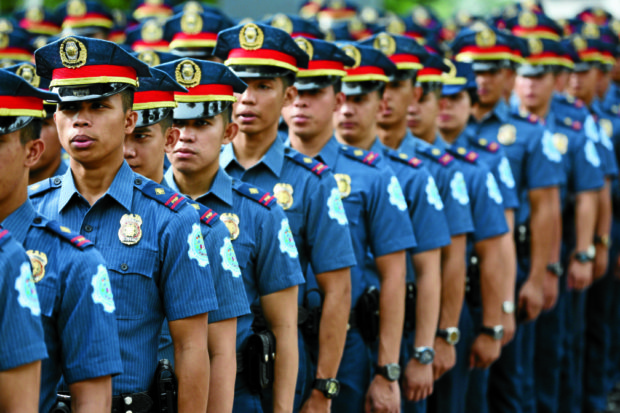The apology from Coco Martin a.k.a. SPO2 Cardo Dalisay was unnecessary.
What was he sorry for? For starring in a high-rating show that accurately reflects corruption in the police force?
For ruffling someone’s high-ranking feathers with his portrayal of an honest cop trading bullets with scalawag colleagues? What, Coco?
Honchos of the Philippine National Police (PNP) last week announced a plan to report the supposed “unfair portrayal of the police” in Coco’s teleserye, Ang Probinsyano to the Movie and Television Review and Classification Board (MTRCB).
PNP director general Oscar Albayalde was particularly incensed about his fictional counterpart in the fictional series conniving with the fictional Vice President in engaging in illegal activities. Albayalde was hurt that the character is a villain in the show.
His superior, Interior Secretary Eduardo Año, immediately seconded the PNP chief’s complaint, blaming Ang Probinsyano for demoralization among the ranks.
Año also mentioned “seriously considering filing legal action and imposing sanctions” against the show. The phrases “grossly unfair” and “inaccurate portrayal of cops” were thrown in.
In the days after, the PNP issued instructions calling “all units” to “stop allowing” the television series’ production crew from using the national police force’s “personnel, equipment and facilities” in the show.
Also to “refrain from assisting” and to “withdraw… support to the production in terms of resources like patrol cars, firearms, personnel, venues and other items and gadgets used in the teleserye.”

Observers are chuckling while the phrase “talo-pikon,” roughly translated as sourpuss, makes the rounds. Albayalde, in targeting the TV show, is likened to a child throwing a tantrum.
Everyone agrees the PNP has always had an image problem and Ang Probinsyano is not the first popular medium to tackle its issues.
There have been countless films, both mediocre and critically-acclaimed, that already did this. And there is widespread agreement that the long-standing image problem is the PNP’s own creation.
This time, it seems the police force is looking for a scapegoat following the barrage of bad publicity now hounding the force.
There is, of course, the scourge of extra-judicial killings with protests reaching their peak following the deaths of adolescents Kian delos Santos, Carl Angelo Arnaiz, and Reynaldo de Guzman in mid-2017.
The mysterious death of Korean businessman Jee Ick Joo right inside the PNP headquarters in Camp Crame, purportedly a case of police extortion disguised as drug bust, also continues to haunt the police force.
Lately, the reports of “palit-puri” where cops force female relatives of crime suspects to engage in sex in exchange for the suspects’ temporary freedom, and of police academy plebes being forced to engage in oral sex have kept police bosses grappling for explanations before microphones.
And let’s not forget Albayalde’s predecessor, Ronaldo “Bato” dela Rosa who behaved more like his mascot than a PNP director general.
Suppressing a television show that centers on grave police abuses in its latest season is hardly the answer if the PNP insists it is only suffering from a PR problem. The issues go way beyond an “inaccurate portrayal” of cops.
The country’s police force would be in gross denial if it insists on such a superficial situation. Corruption among the ranks begins early. We have read of entry-level PO1’s throwing their weight among sidewalk vendors, who amass daily collections running up to six figures when put together as instructed by bosses waiting in air-conditioned offices.
We’ve also covered cases of high-ranking police officers who rub elbows with big-time kidnappers and other crime lords. The situation is endemic. It would take more than canceling Ang Probinsyano to solve it.
It would be better for Albayalde, Año, and their advisers to take off their macho suits, roll up their sleeves, gather around a table and conduct an honest scrutiny of their institution.
It would not hurt to listen to the objectivity of outsiders they respect, those whose vantage point is not clouded by proximity to those in power.
An overhaul of the ranks, a weeding out of undesirables, is the most sensible first step. But it is something that can only be effective if done with openness and transparency.
Get more stories like this by subscribing to our weekly newsletter here.
Read more:
Do the police even know what “tambay” really means?
A “major” sponsor’s sense of entitlement puts Miss Earth pageant on the spot
No surprise: Duterte’s misogyny has trickled down to the rank-and-file













































